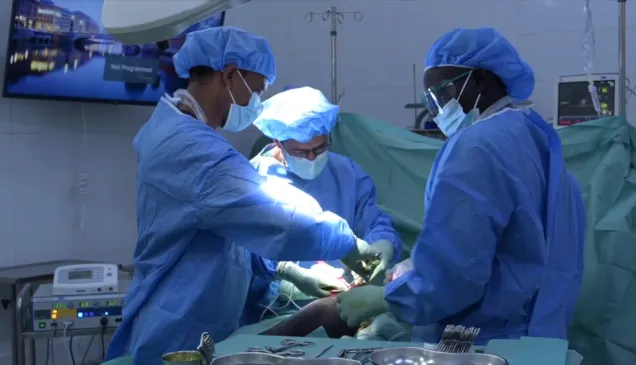South Sudan photos: If you had three minutes, who would you call?
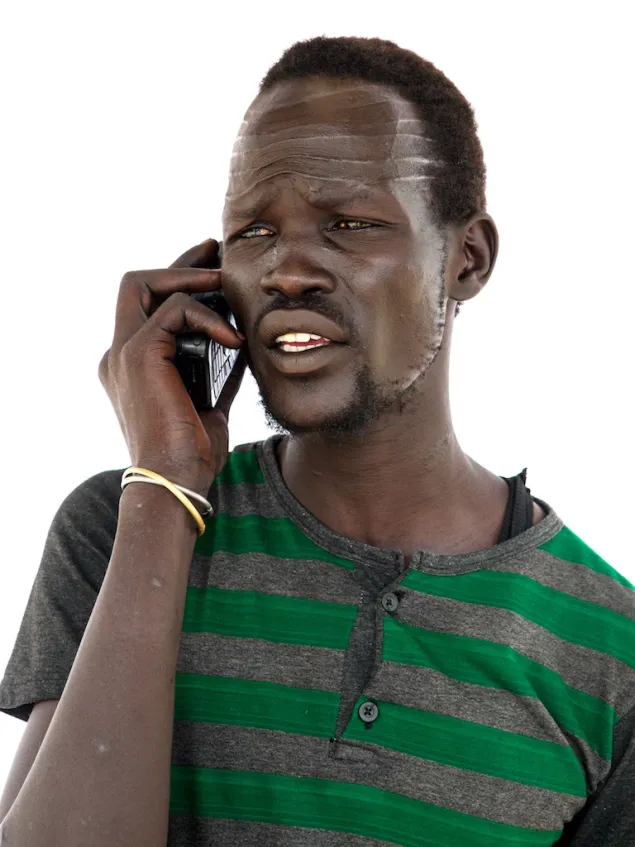
Liep was calling his wife, whom he hadn’t seen or spoken to since December 2013. He wanted to know how she was and to ask about his children. Liep wanted to say: “I miss you and our children, but don’t worry, I’m doing well.”
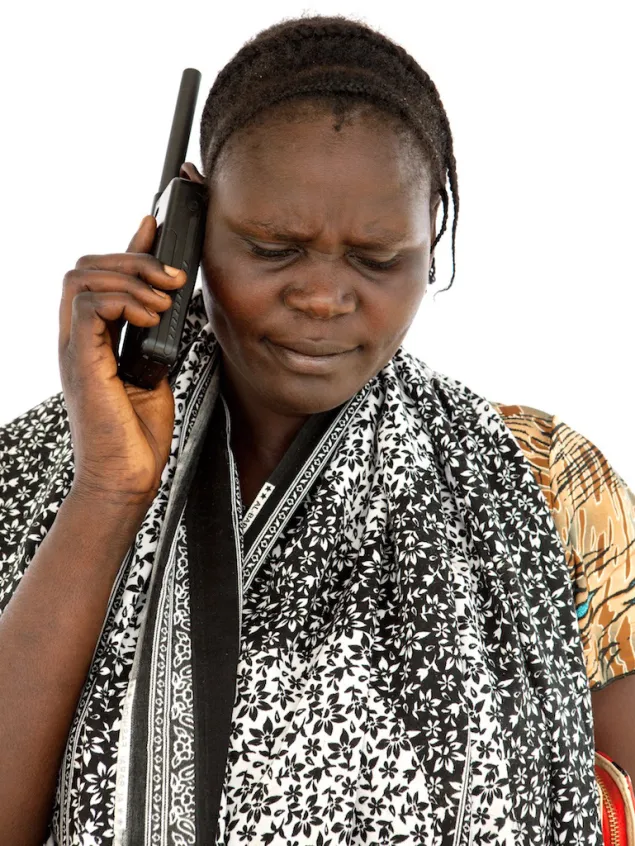
Nyanding Kuang Puol, 31 years old, from Akobo
Nyanding was calling her children who fled the fighting in December 2013. She has seven children and lost contact with them soon after they left. She wanted to know they were safe. She wants the children home so she can look after them, but for now she knows that’s not possible.
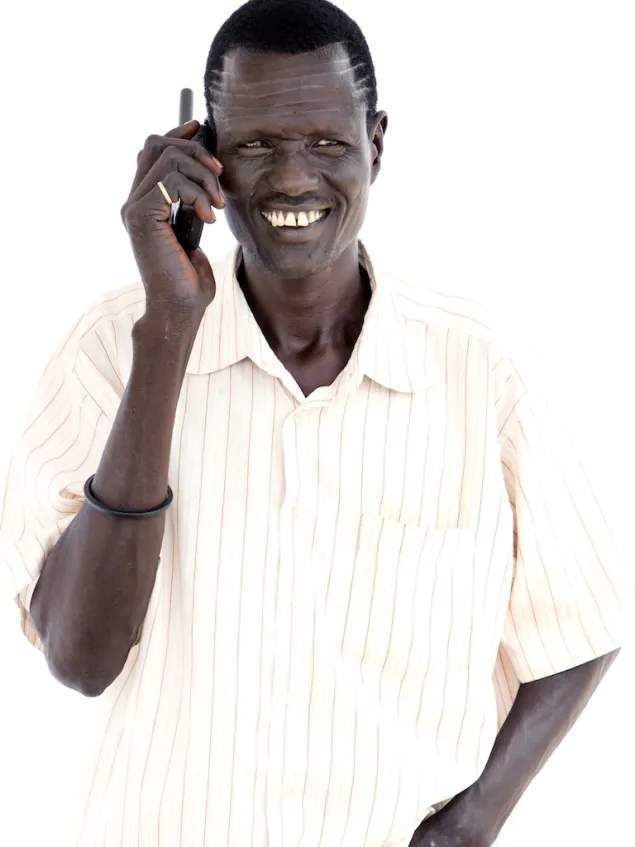
Wan Kiir Wan, 39 years old, from Akobo
Wan was calling his wife. He hadn’t spoken to her since March 2014. He wanted to know how she was and to encourage her to be patient. “In time,” he told her, “we will be together again.”
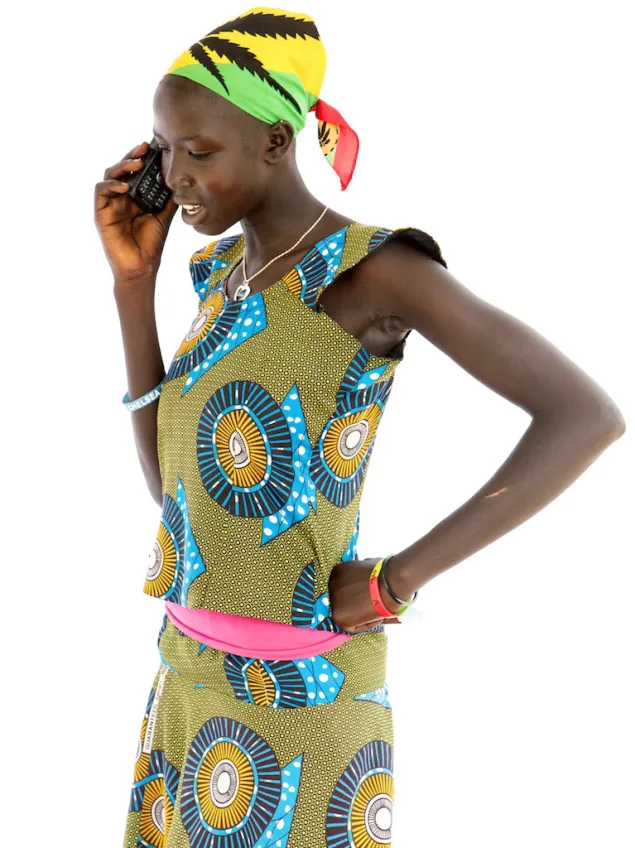
Nyiakubo Wiyual, 16 years old, from Akobo
Nyiakubo was calling her brother whom she thought had been killed in the fighting. She hadn’t heard from him since 2013. During the call she started to cry. “I am crying because I thought that my brother had been killed, but now I hear his voice. I’m so happy,” she said.
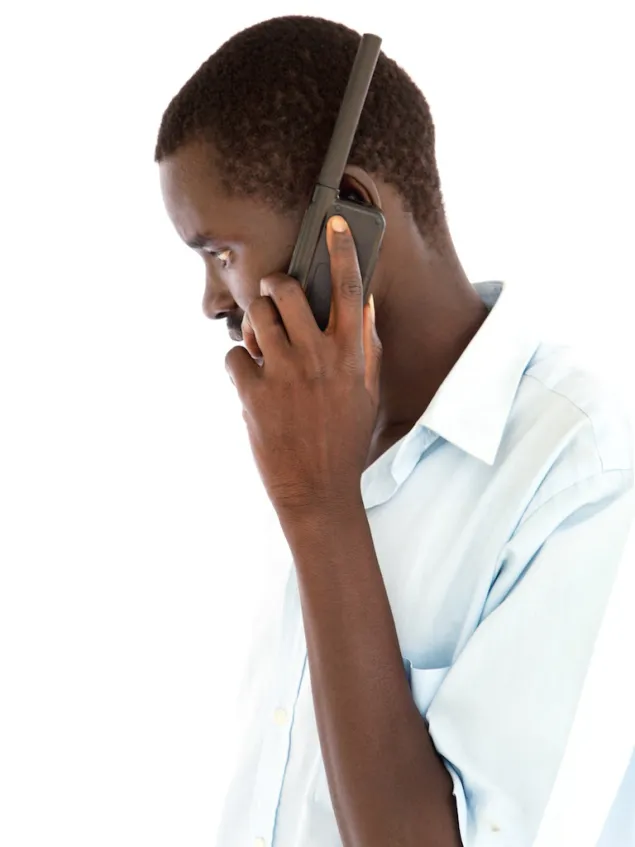
Chiey Yak Puok, 33 years old, from Akobo
Chiey was calling his sister, who he had last seen in 2013 when she escaped from the fighting in Akobo. His message for her was simple: “Two days ago my wife gave birth to a baby girl. You are an aunt!”
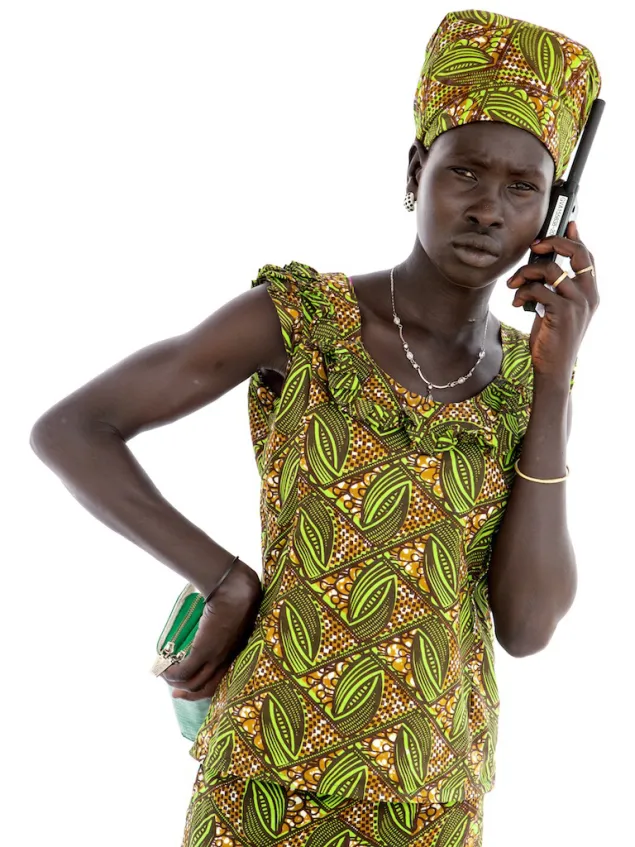
Nyanchan Maluol Mot, 19 years old, from Akobo, South Sudan
Nyanchan was calling her sister. She was in an internally displaced persons camp in Juba. They hadn’t been in contact since 2013. She wanted to tell her sister they had found another relative in Juba and hoped to put them in contact with each other so that her sister would not be alone.
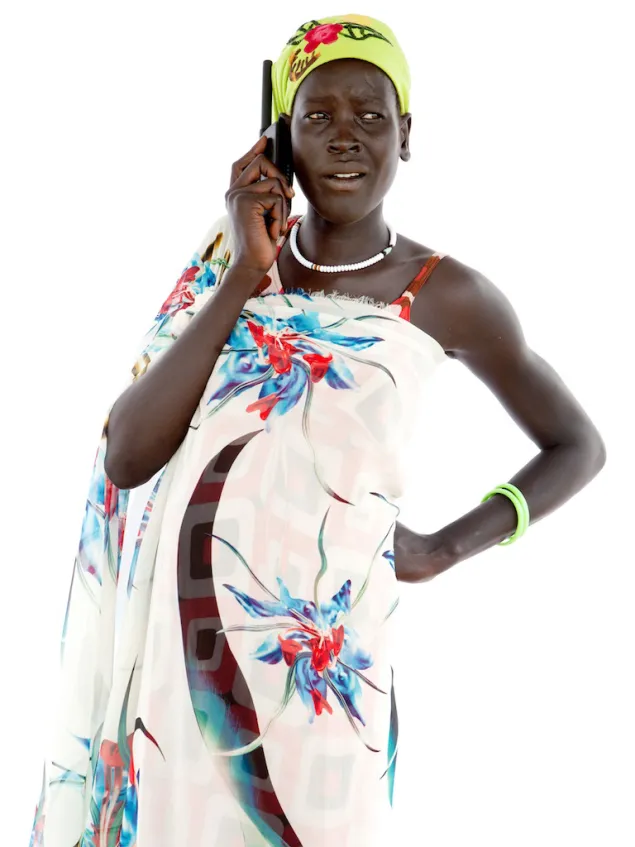
Chieu Lam Turuk, 18 years old, from Akobo
Chieu was calling her husband who was studying in Addis Ababa. They hadn’t been able to speak since April 2015. She had news for him: she was pregnant! But she wanted him to know she was fine and that he must continue with his education.
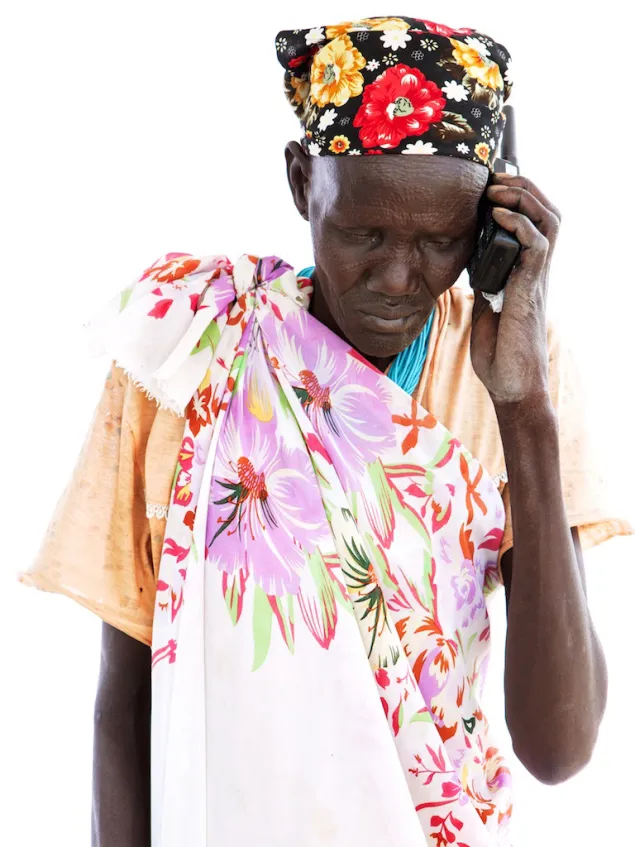
Chol Lul Walou, approximately 60 years old, from Akobo
Chol was calling her daughter and son-in-law, with whom she had lost contact in December 2013. They were now living in Khartoum, Sudan. When the war started, Chol was left alone and she has nobody to help her. She asked her family to send clothes and money. “Because of the war I have nobody,” she said.
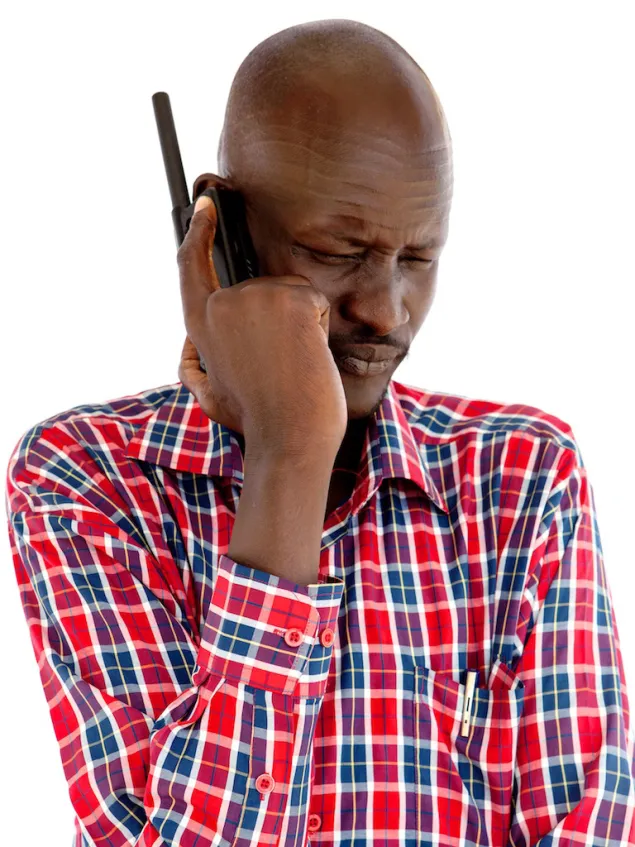
Kong Gatkek Chika, 34 years old, from Akobo
Kong was calling his wife and three children, who fled to Uganda on 15th December 2013. Kong just wanted to call to know they were ok and to let them know he was safe. “I just want you all to come home,” he told them.
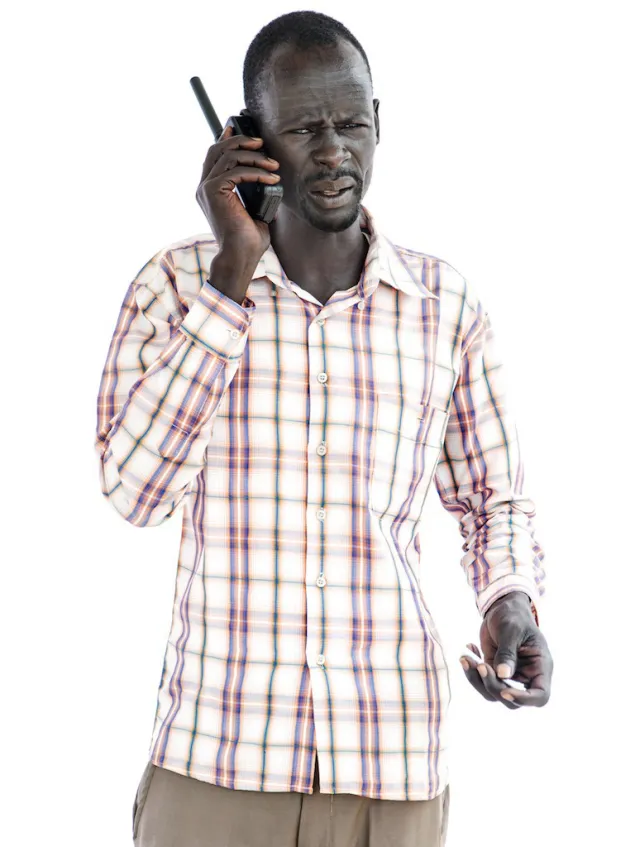
Simon Lam Yiek, 33 years old from Akobo
Simon was calling his brother in Juba. They lost contact in December 2013.
He wanted to tell him the family here was well, but needed clothes, which Simon was hoping his brother could send. He also wanted his brother to send a photograph, so he could see he was doing ok.
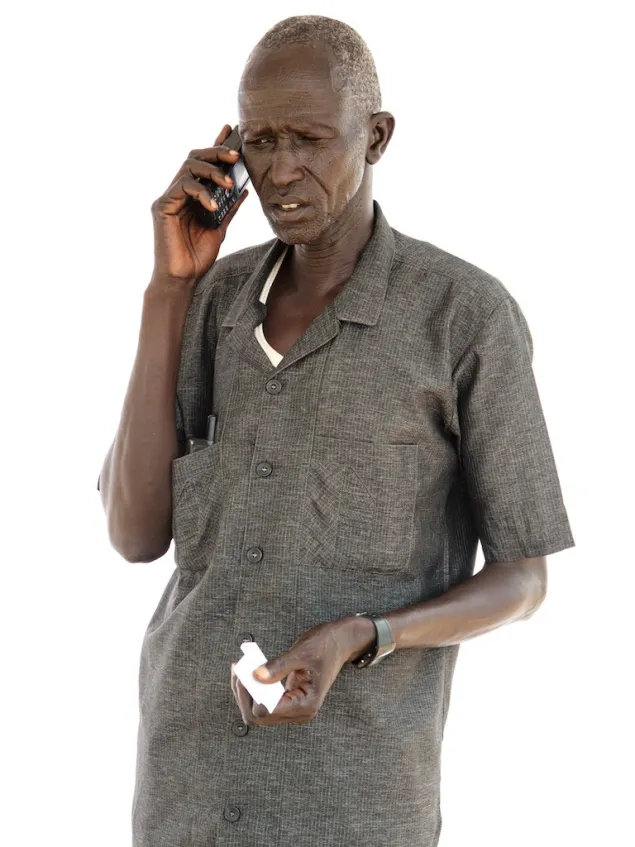
Nyakureht Banang Tier, 40 years old from Akobo
Nyakureht was calling his son, who was in Juba when the fighting began.
“I just wanted to tell him we are ok,” he said.
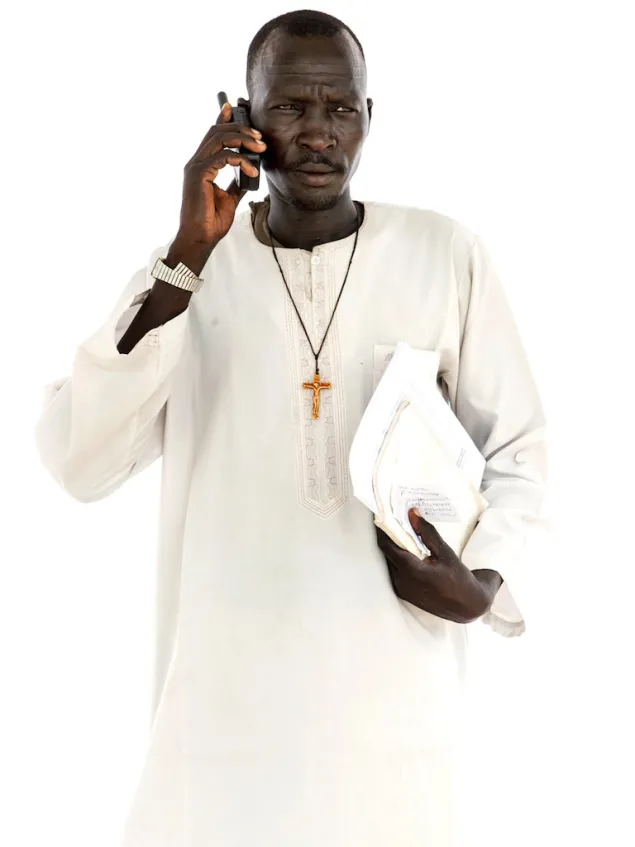
John Kuich Chol, 42 years old, from Akobo
John was calling his wife and three children, who fled to Kenya when the fighting began in 2013. “I just want to know they are ok,” he said.
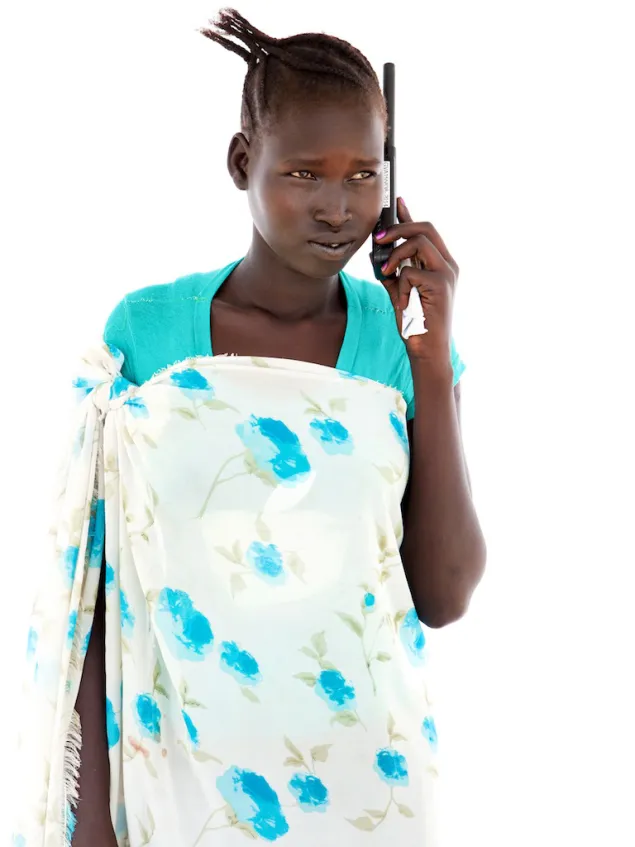
Nyabuai Gai Rial, 19 years old from Akobo
Nyabuai was calling her uncle in Bor. He’s been there since 2013 with his son.
Nyabuai’s aunt wasn’t able to walk all the way to where the calls were being made from. So she’d asked Nyabuai to call for her, to tell her husband she was ok.
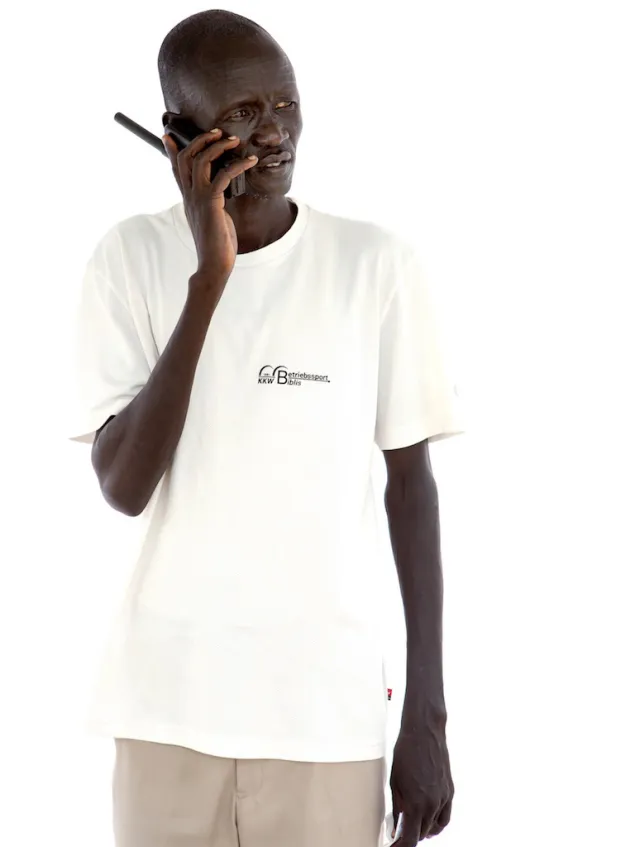
Yen Gai Nai, 40 years old, from Akobo
Yen was calling his brother, whom he hadn’t spoken to since December 2013.
“I just wanted to know he’s ok,” Yen said.
Hundreds of thousands of men, women and children have been displaced or have fled into neighbouring countries following the crisis that erupted in South Sudan in December 2013. Staying in contact with family and friends keeps hope alive, but time and opportunity are invariably short.
To help people find and keep in touch with loved ones, the Red Cross has expanded its 'Restoring family links' (RFL) activities in the country. The service includes free phone calls, hand-written Red Cross messages for conveying family news, and a photo album of displaced South Sudanese published in a 'Snapshot book'.
To date, more than 112,000 phone calls have been made, 7,700 messages have been hand-delivered and 700 people have been reunited with their families.
In October, British photographer Giles Duley went to Akobo, Jonglei State, to document the project, run by the ICRC and a team of South Sudan Red Cross volunteers.



